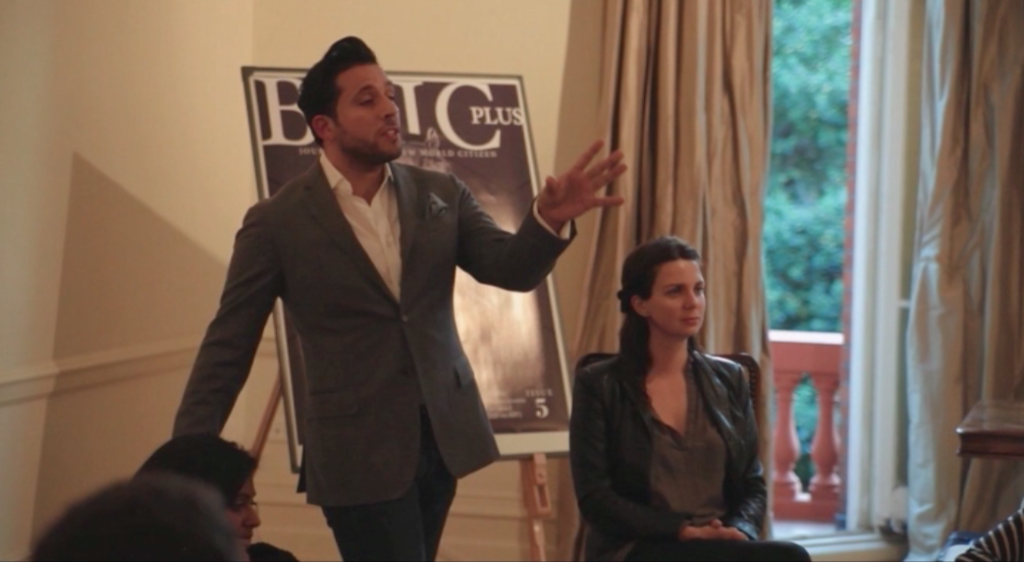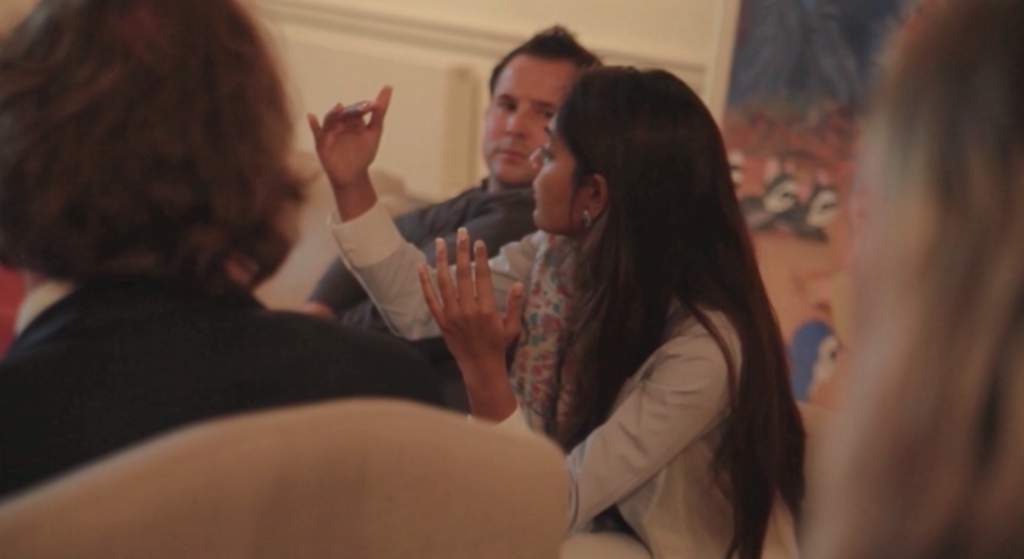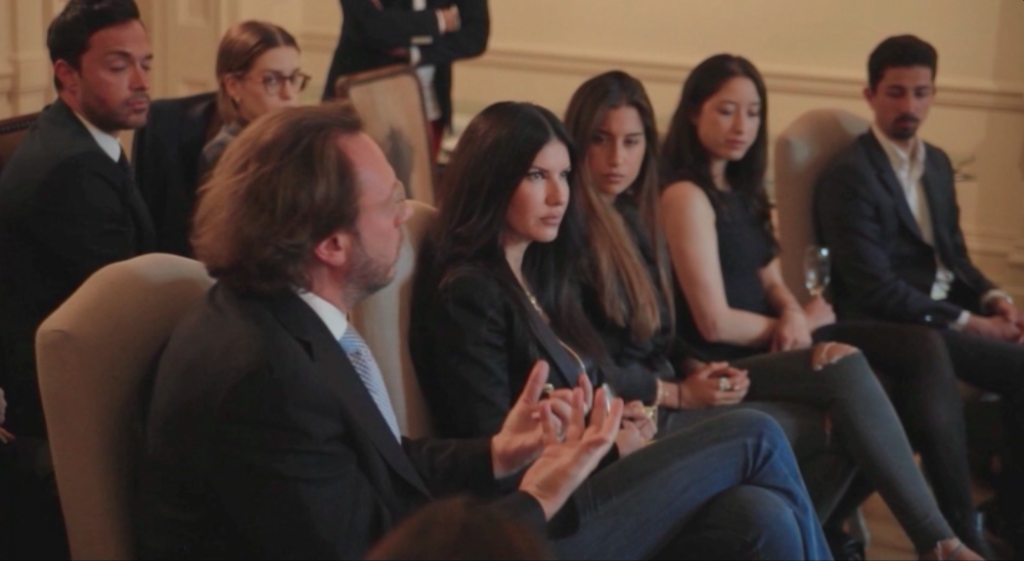- London is overtaking cities like Paris and New York in the luxury sector because of its unique approach to marketing: a powerful combination of ambassador policy, respect for cultures worldwide and a consistent use of print media.
- This kind of fusion marketing has been utilised by London stores and luxury brand HQs.
- BRIC House recommends that luxury brands collaborate with businesses originating in emerging economies to create an international narrative.
With the great influx of wealthy internationals coming to London every year, not only for its historical heritage but for its vast luxury goods offering, the capital is promising to outshine Paris and New York. Why you may ask? This is because London’s luxury sector is far more bespoke and culturally-sensitive to the international consumer. Furthermore, with over half of customers from the luxury industry in London coming from emerging countries, when we talk about fusion marketing we talk about it happening here in London – not in the foreign stores.BRIC House hosted a brainstorming event where professionals representing 21 ultra-luxury brands came together to discuss how they can increase the value of their brand for emerging market customers.
Kim Kardashian for Balmain? London is thinking differently.
Normally a brand chooses a particular public figure, a brand ambassador, to represent and be associated with their brand. The most common ambassadors are mainstream celebrities, but for London the response from ultra high luxury brands was different and unanimous: Global opinion makers, influencers and innovators are more desirable brand ambassadors than transient celebrities. Immediate association of a brand with a celebrity is difficult to shake off and may not always be beneficial.
‘A celebrity brand ambassador creates the idea that our jewellry is only to be worn once, while it’s “on trend”, but we want to offer the opposite – timeless pieces an elegant woman would want to wear over and over again. Our perfect ambassador would be a highly respected wife or mother in the Middle Eastern scene known for her philanthropy” – Avanti Goenka, Bina Goenka Jewellery, one of the world’s most exclusive jewellery brands.
‘Celebrities tend to split opinion and create controversy, whereas a globally successful entrepreneur can only be inspirational and universally admired, and infinitely more accessible and relatable if they come from an emerging market.’ – Dominic Knight, bestselling author,
public speaker and owner of the luxury Harley St practice.

‘You need to know your most loyal clients and ours like privacy and exclusivity – if they saw a dress on a celebrity it could deter them from buying it. Our ideal brand ambassador would be someone who has achieved more than just fame – as controversial as that might be!’ – Lorna Morgan, Manager of Giorgio Armani in Sloane Square.
Respect sets London apart
Cultural mistakes can be avoided by learning more about the people of the new global economic powers. Keeping on top of the news, trends, developments and influential individuals in these countries can add that personal touch that creates lasting relationships and loyal customers.
‘We are opening in London, not only to target British, but international people that come to London and call it their home.’ Avanti Goenka of Bina Goenka
In order to offer an outstanding quality of service for these new customers, the staff must learn about the cultures of their customer allowing them to make a genuine connection. It is important to be informed and educated about clientele in the emerging markets without ever leaving London. Frederick Fischer, UK director of Lalique, said
‘different cultures have different expectations of service, so to serve them well you need to know their culture and etiquette. You might have to keep a respectful distance from a Japanese customer, or be expected to shake hands with a French customer and with a Middle Eastern customer the way you approach a man would be very different to a woman. Every customer is unique and we should be trying to establish a lasting relationship with them so it is imperative to not make cultural mistakes.’
Luxury marketing: print wins over Twitter
It is estimated that 81% of teenagers with internet access globally use social media daily. All the brands invited to the event do use an array of social media platforms including Facebook, Twitter, Instagram, LinkedIn and Pinterest. Emerging luxury brands see it as sin qua non with their brand’s success whilst other more entrenched brands reluctantly see it as a ‘necessary evil’. Despite this, many of the guests said social media did not reach their target audience.Luxury brands create an illusion, a mystique and an aura of exclusivity which can be lost with the over exposure and transparency of social media. They are synonymous with heritage, class and sophistication that can potentially be devalued by the presence on often transient social media.
In the discussion on other mediums of advertising print came out on top. It seems print is still very powerful and its tangibility in a virtual world adds to its believability and clout, which many customers in the emerging markets respond well to. Luxury travel expert Tony Walker-Banfield was adamant: ‘100% print over digital media! I shared an article in BRIC Plus with a client by physically giving them a copy of the magazine and they loved it. Tangibility is so much better than a link, especially if the magazine is as professional and relevant to the luxury clientele as BRIC Plus magazine.’
Jose Neto knows all about how a beautiful book can captivate a customer from his experience at Assouline. He applies his theory to print media; ‘you engage for a longer time with a physical magazine, especially if it’s nice enough to sit on your coffee table, than with a blog on your phone. Therefore adverts are looked at for longer in print than online.’
Lydia, founder of BRIC Plus Magazine: ‘In order to increase sales and potential client base, luxury brands in the UK should collaborate and co-market with other businesses that have a base in emerging markets. These businesses have direct access to their local clientele that could have an extremely high purchasing capacity and would otherwise have no access to celebratory events and special customer deals. This strategy would also benefit foreign luxury brands who wish to enter the UK market through partnering with UK luxury brands. BRIC House develops ties between both worlds allowing us to notice the increasing need for globalised marketing.’
This event was hosted by BRIC House. BRIC House is the event division of BRIC Plus Magazine, an exclusive London based publication discussing who and what is creating the greatest global impact. For more exclusive insights into the impact of the emerging world subscribe to BRIC Plus Magazine here. Visit www.bricmagazine.co.uk for more information.
If you like this artcle you may be interested in “#BRICHouse: The Secret to Success in Emerging Markets”.










